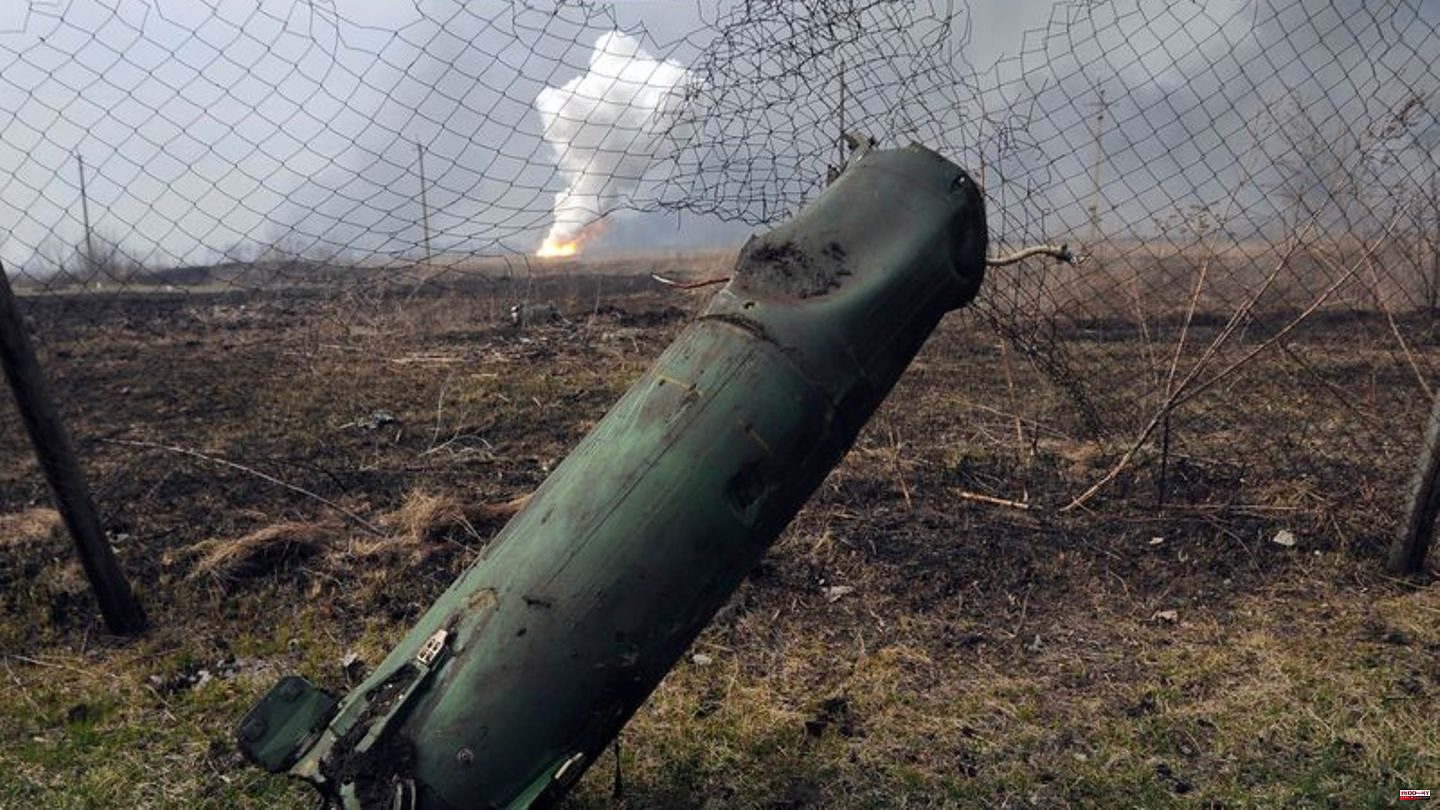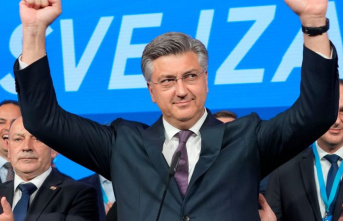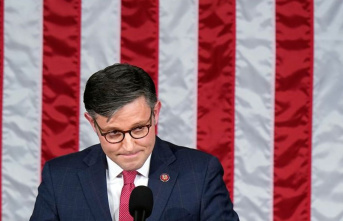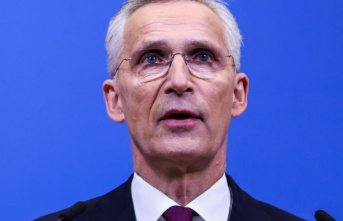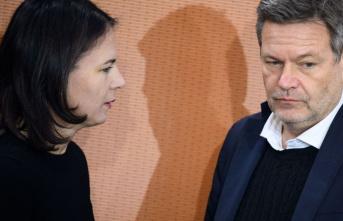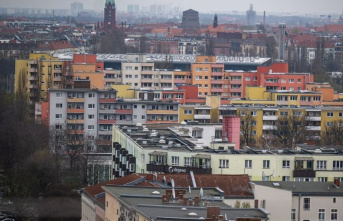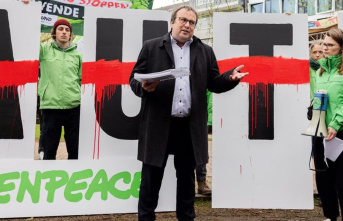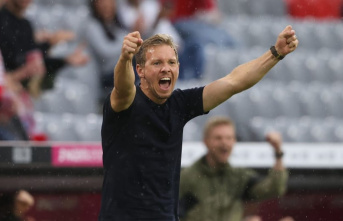In the small town of Balaklija, the yellow and blue flag of Ukraine has been flying over the town hall since Thursday. The 30,000-inhabitant community 100 kilometers south-east of the city of Kharkiv had been occupied by Russian troops since the beginning of March before it came back under Kiev's control in the course of the Ukrainian counter-offensive in the east of the country.
Balaklija was considered a strategically important outpost of the Russian army. From here, the troops should advance further in order to bypass the Ukrainian grouping in the Donbass, which is concentrated in the Sloviansk and Kramatorsk conurbations, and to attack from the north-west. With the Russian forces already in place south of the small town of Izyum, they would have formed a kind of pincer designed to crack the defense bolt. The Russians had already established a bridgehead on the opposite side of the river from Balakliya.
Ukrainians face important traffic junction
The Russians must now bury these offensive plans with the abandonment of Balaklija. But the loss of the city is by far not their biggest problem: With their rapid advance, the Ukrainians have cut a 50-kilometer swathe in the rear of the Russian troops. Now they are standing directly in front of the small town of Kupjansk, which is important as a transport hub for supplying the entire troop formation around Izyum because of its direct rail connection to Russia.
After all, it's about more than 10,000 soldiers. The unit is now in danger of being surrounded because Ukrainian units are suddenly to the west, south and, thanks to the rapid advance, also to the north. In the east, the Oskil, which is partly formed into a reservoir and flows into the Siwerskyi Donets, hinders supply or retreat.
It appears to be the Russian army's worst crisis since the withdrawal of its troops from Kyiv, which Moscow at the time still declared to be a "gesture of good will." The Russians are now potentially in danger of losing the initiative on two front sections at the same time. In addition to the Kharkiv region in the north, the attacks of the Kiev troops are also continuing in the southern Ukrainian region of Cherson - with attempts to push back the Russian troops there across the Dnipro.
Lethargy in Russia
The difficult military situation is also reflected in Russian society. After more than half a year of war, some of the initial nationalistic euphoria has given way to lethargy.
In the past few days, the tone in the social networks against their own military leadership has sharpened significantly. The criticism is mainly directed at two points: on the one hand, on the obviously misjudged situation and, on the other hand, on the lack of information policy. A possible strike in the area had been known for a month, complained the deputy chief of the Moscow City Duma, Andrei Medvedev. The current development could therefore have been foreseen. Blogger Yuri Podoljaka admitted that the Ukrainians "duped" the Russian army at this point.
The palpable resentment after the setbacks near Kyiv, the loss of Snake Island, the sunk cruiser "Moskva" (Moscow) and the constant attacks on Russian areas near the border is now becoming even louder. Although the motto is still "don't panic," the weaknesses of the Russian military can no longer be concealed after the defeat at Balaklija.
And instead of "Offensive", "Attack" and "Advance" as was usual up to now, we are now talking about "Defense". The Russian war correspondent Semyon Pegov asks the question in disbelief on his Telegram channel: "How could this happen? Why? Who is to blame?" His colleague at state television, Andrei Rudenko, is demanding tough action against those responsible.
After the burglary, the national-patriotic military blog "Rybar" also demanded that "heads must finally roll" and that this "playing a war" must finally stop. At the same time, he criticized the "Vostok-2022" military maneuvers, which were taking place several thousand kilometers away parallel to the war, especially since the army leadership was repeating the same tactical mistakes that they had already demonstrated during the war. "The military leadership does not learn and does not want to learn," the creators of the blog concluded.
Ultranationalist Russians are critical
The sharpest criticism was habitually expressed by Igor Girkin, known by his alias Strelkov. The former Russian secret service officer, who led the separatist uprising in Donbass in 2014, has been complaining for months about what he considers to be insufficient harshness against Ukrainians, the incompetence of the Russian military leadership and the sometimes absurd reports of success from the general staff. He calls for a general mobilization in Russia for a major war against the neighbors. Otherwise Russia will lose, he warns. "I have the feeling that our army will collapse in October," he said after the Ukrainian counter-offensive in Balaklija.
Girkin presents the ultra-nationalist part of Russian society. However, one that Vladimir Putin has strengthened for years with his great power rhetoric and on which he has based his own politics. The attack on Ukraine, which was supposed to be brought back as part of "the Russian world", was supported by precisely this part of the population. Putin drew a not inconsiderable part of his authority from the 2014 annexation of Crimea, of which many Russians are still proud today.
But the current defeat also scratches the reputation of the "military genius" Putin. Especially since neither his generals nor his spokesman Dmitry Peskov want to comment on the situation to explain it. The Moscow mantra "everything is going according to plan" is no longer enough to calm people down. According to observers, it needs successes - or culprits in the disaster. According to some experts, if Putin doesn't come up with something quickly, he risks becoming a scapegoat himself.

